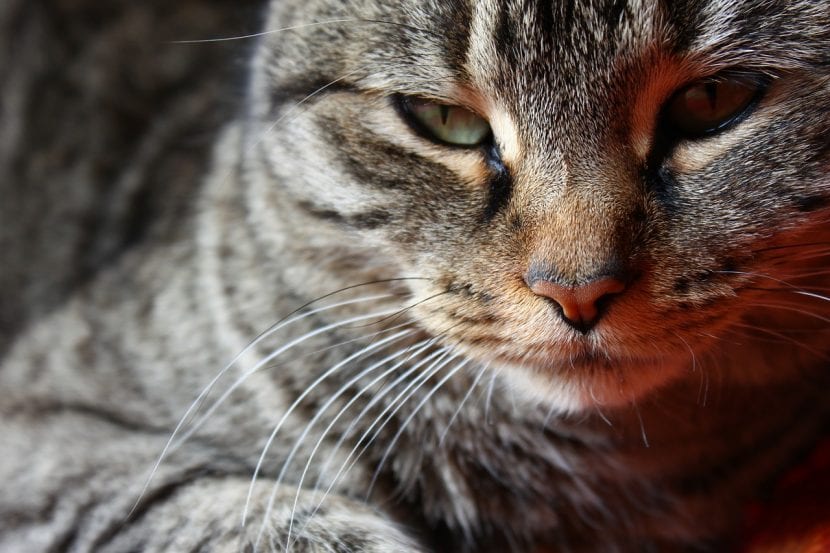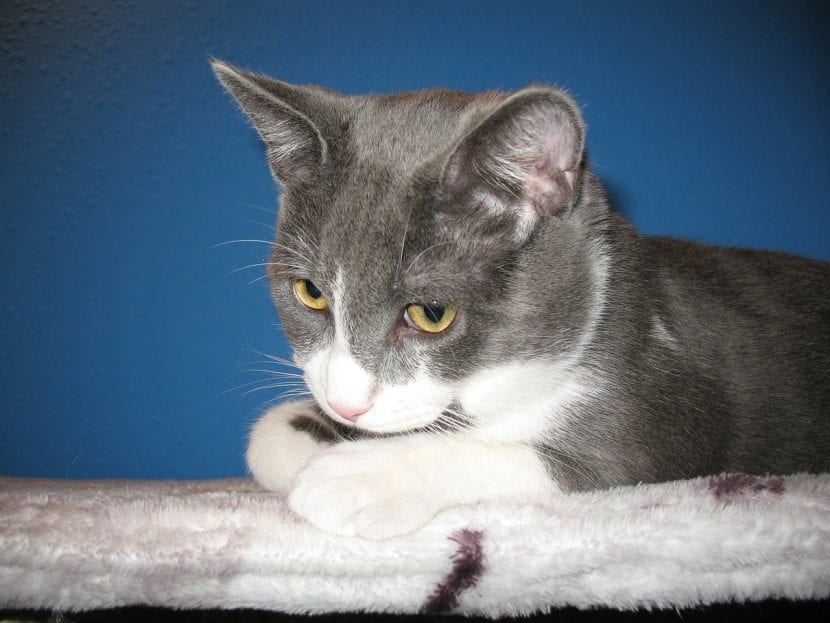
When we decide to share our life with a cat we have to be very aware that, at any moment, you can fall ill and that, in doing so, you may require veterinary help to continue leading a normal life. Even if we can do several things to take care of your immune system, we can never fully protect it.
One of the diseases you may have is known as feline herpesvirus, which is one of the most common. Therefore, we are going to explain to you what are the symptoms and their treatment.
What is feline herpesvirus?
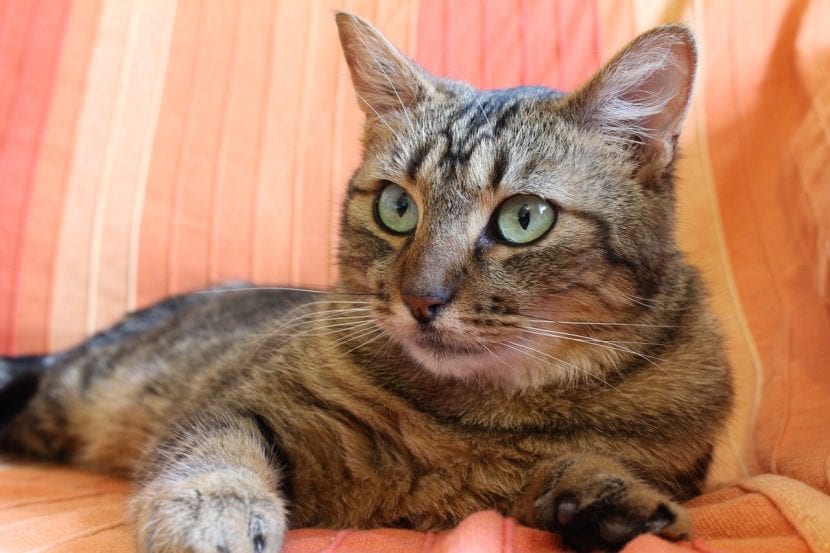
This virus, known by its acronym FHV-1, is characterized by the existence of different strains that mutate, which causes the disease to have different degrees of intensity. The method of transmission is through the sneeze, tears and / or mucosa of an infected catNot only by being close to a healthy cat but also our friend can end up sick if he uses the same feeder, litter box and toys that one that is, can become infected.
While it is not contagious to humans, We could spread the virus to other cats if we have handled one that is sick and have not washed our hands well or changed clothes.
Once it enters the feline's body, it you may be without showing symptoms for months or even years, and that one day, they appear, either because the animal is stressed, overwhelmed or depressed for some reason.
What are the symptoms?
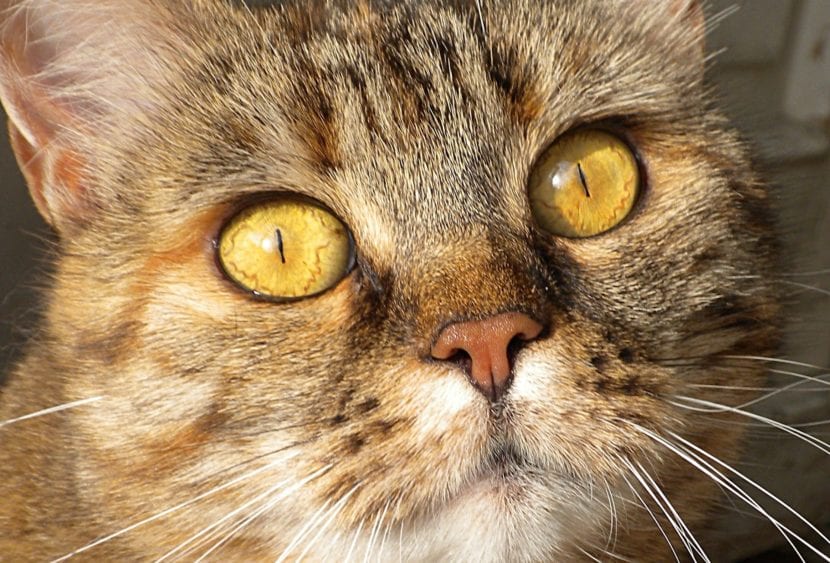
The most frequent symptoms of feline herpesvirus are the following:
- Trouble breathing
- Eye secretions in one or both eyes (tearing and / or laughter)
- General discomfort
- Apathy
- Loss of appetite
- Sneezing
In the case of the newborn kitten, neonatal ophthalmia may occur, which is the inability to open the eyes. Unless treated promptly, ulcers may appear, a black coating over the cornea, or the iris may merge with other parts of the eye.
If our friend has any of these symptoms, we must urgently take him to the vet.
Diagnosis and treatment
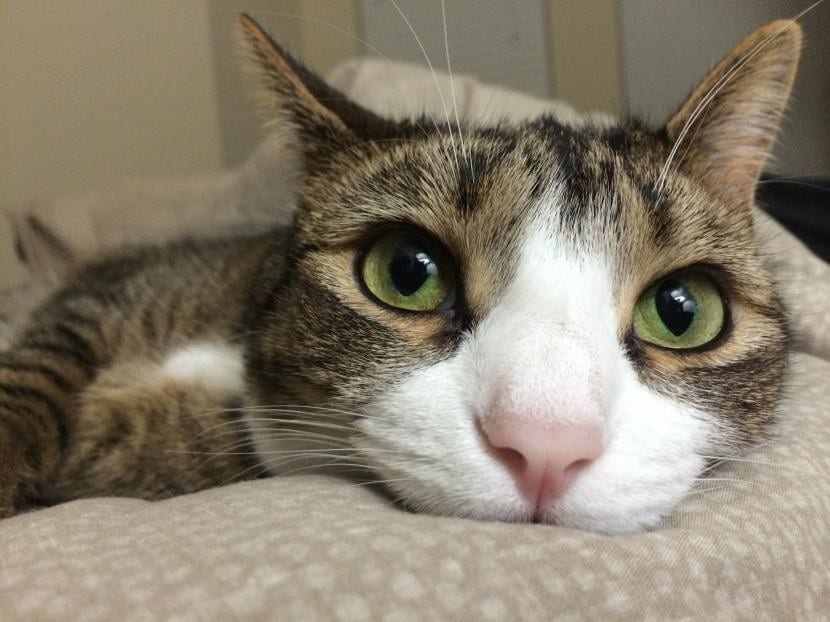
When we take you to be examined by a professional this perform a blood, saliva and tear test to confirm the diagnosis and start treatment as soon as possible by prescribing antivirals, antibiotics and anti-inflammatories. This will strengthen the immune system, which will be able to fight the virus more easily.
Anyway, this is not enough. At home we have to keep the cat well cared for, making sure that drink enough and that their eyes, nose and mouth are well clean. For this purpose, we must use sterilized gauze and a little warm water.
In addition, you may not like the diet that we give you regularly and we have to change it. If so, we can try cans of wet feed or homemade chicken broth. If you still don't feel like eating, give him liquid food using a syringe without a needle.
If we have more cats, the patient will have to be in an isolated room to avoid contagion. Every time we go to take care of it, we will have to clean our hands well and change clothes to minimize the risk of contagion.
Likewise, We will have to give him a lot of love and keep him company everything we can so that you have the strength and can move forward.
Can it have sequels?
The truth is that yes. You may have long-term corneal scars, or have cloudy vision. Also, you are likely to be a carrier of the virus for your entire life.
Can feline herpesvirus be prevented?
100% no, but yes, it can be prevented. The most important thing is to take the cat to be put on vaccines necessary and reinforcements. In addition, it is convenient to feed him with a high quality food, that has no cereals, so that it can grow and stay strong enough so that, when the time comes, your body can better overcome infections.
As we can see, feline herpesvirus is a very serious disease that, as soon as the first symptoms appear, the furry should be taken to the vet.
